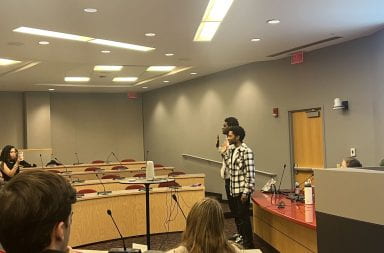Last week, The Lantern published an article on the university’s decision to impose an extra $500 fee per semester for international students. From many perspectives, this seems like a completely unfriendly attitude of the university and directed more by greed than concern toward international students. These students are already facing exorbitantly high fees, roughly three times that of in-state tuition fees. It goes without saying that the cost of education has been on the steepest curve for any student attending college in the past decade. This has made attending college very hard even for domestic students, so it seems inconceivable to levy an extra fee on international students who are already paying astronomical amounts.
This leads me to a logical question: Do international students have a lesser right to higher education to improve their living standards by being the first member of their family to go to college? The university justifies its act by stating that they used the international student fee charged at Purdue University as a benchmark to assess how much should be charged at OSU. In this regard, I would request the university officials to also consider the model followed by other, “better-” ranking universities. The University of Maryland at College Park, for example, could serve as a benchmark where, after two consecutive years of enrollment, out-of-state students, including international students, are eligible to pay in-state tuition fees.
OSU’s chief financial officer, Geoff Chatas, was quoted in the article saying, “The number of international students has been increasing every year. When you add more and more international students you have to add resources for those students. There’s a cost to all that.”
As an international student, my question to Mr. Chatas is, where does the money which international students pay, which is more than the in-state fees, go? Certainly there are no special facilities in the classroom for international students who sit in the same big classes as their fellow students. Moreover, many of these classes are taught by graduate teaching associates who are paid peanuts for their stipend.
The article mentions no consultation between the university Senate and any of the international student organizations on this matter. In the absence of any organization to raise its voice against this corrupt practice, international students will be forced to bear the charges levied by the university.
As aptly stated by one of the international students interviewed by The Lantern, “I think it’s unfair. I can’t do anything about it. I have to come here to study.”


